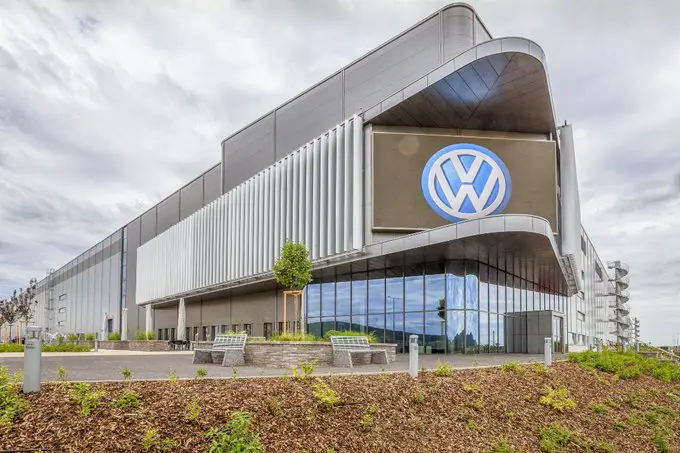Construction on Volkswagen’s 40GWh battery cell gigafactory in Salzgitter, Germany, has begun. In the future, the company intends to dedicate capacity to grid-scale energy storage. The automative company revealed the commencement at a groundbreaking ceremony held on 7th July 2022. Consequently, the plant, which is scheduled to open in 2025, will produce battery cells for electric vehicles (EVs).
It is a part of the company’s “battery offensive,” which got underway with the establishment of PowerCo, a new subsidiary that will house all of the company’s international battery business. According to Volkswagen, PowerCo intends to produce goods for the grid-scale energy storage market in the future.
The battery industry will receive investments totaling €20 billion (US$20.3 billion). Thus, it will be able to surpass €20 billion in annual sales and employ up to 20,000 people in Europe.
Read Also: Work to commence at Silvertown Royal Docks Redevelopment Project Site
The Volkswagen’s 40GWh battery cell gigafactory in Salzgitter, Germany
Volkswagen has planned a number of gigafactories, the first of which will be in Salzgitter, where PowerCo will have its headquarters. Moreover, three more gigafactories in Europe are currently being considered. The next one will be built in Valencia. Additionally, PowerCo is investigating the potential for additional gigafactories in North America.
The Volkswagen Group plans to run six cell factories with a combined capacity of 240GWh in Europe by the year 2030. Olaf Scholz, the chancellor of Germany, said of the groundbreaking: “Today is a good day for the automotive industry in Germany and Europe. Volkswagen is presenting a possible future for environmentally friendly, sustainable transportation. Together, we are laying the groundwork for Volkswagen’s 40GWh battery cell gigafactory in Salzgitter to significantly shape this future.
According to the company, each factory PowerCo opens will run entirely on renewable energy sources. Furthermore, it will be built for future closed-loop recycling. It also said that up to 80% of all Volkswagen Group EV models will use its prismatic unified cell, which enables flexible use of various cell chemistries. The cell will lower battery costs by up to 50% and “harness synergy effects.”

Leave a Reply